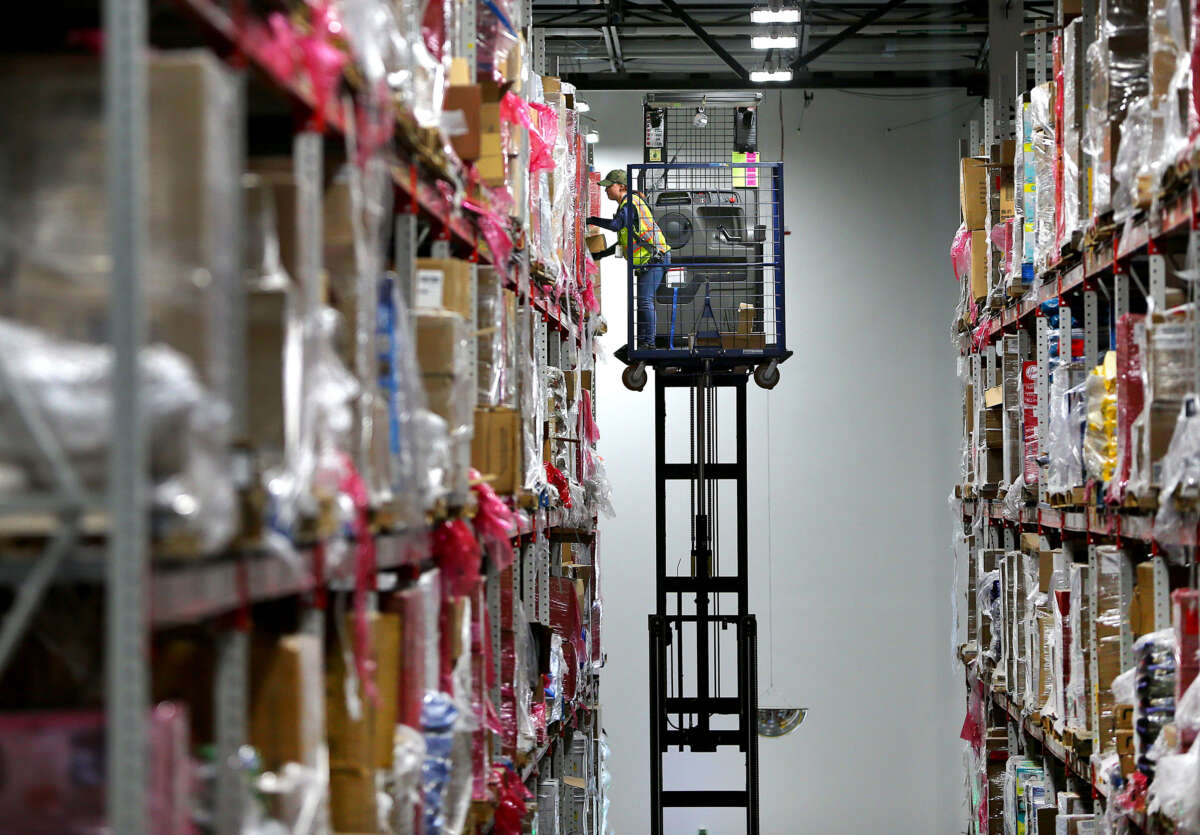New York warehouse employers must now follow stricter rules regarding quotas on their workers, according to a law drafted with input from Amazon Labor Union (ALU) in response to Amazon’s severe productivity requirements.
Gov. Kathy Hochul signed the Warehouse Worker Protection Act on Wednesday, after the bill passed the legislature this summer. The law is modeled after a similar law passed in California last year, and requires companies to ensure that workers aren’t denied basic accommodations like meal and bathroom breaks in order to meet their quotas.
It also mandates that companies be more transparent about workers’ quotas, requiring businesses to post productivity expectations on job listings and respond to requests from workers wishing to know their quotas. Workers are frequently unaware of the productivity requirements that they’re under, even though they are often disciplined for not meeting them.
“Every worker in New York State deserves to be treated with fairness, dignity and respect,” Hochul said.
The bill was written with help from ALU, the union behind the formation of the first-ever Amazon warehouse union earlier this year, which celebrated the victory.
“Proud to say that [ALU] helped write the first law for Amazon workers in New York State,” wrote ALU President Christian Smalls on Twitter. “Thank you [New York Sen. Jessica Ramos] for leading the push for this bill.”
Amazon in particular is notorious for its productivity expectations, with workers required to scan hundreds of items every hour; as one worker, Candice Dixon, told The Atlantic and Reveal News in 2019, she was expected to scan an item every 11 seconds at her Amazon warehouse job in California. If she fell below that rate, even if she was working through injury, she was reprimanded.
Indeed, many workers are injured while performing their jobs at Amazon. In part because of the speed requirements, Amazon warehouses are a uniquely dangerous place to work, racking up more workplace injuries than any other company warehouse year after year. And, following Amazon’s example, other companies across industries are implementing ways to track their workers’ productivity as well.
Advocates for the bill say that it will provide workers with long overdue protections from punishing work conditions.
“Regulations protecting workers in the warehousing industry have lagged far behind its rapid growth until today,” Stuart Appelbaum, president of the Retail, Wholesale and Department Store Union (RWDSU), which had pushed for the bill, said in a statement. “The RWDSU has long prioritized the challenge of protecting warehouse workers from stress induced injuries and illness from limitless quotas and it’s why we pushed for the introduction of the Warehouse Worker Protection Act.”
“Teamster members have spent decades fighting for strong safety standards in the warehouse industry, but Amazon’s growth is again putting workers in danger,” said Teamsters Joint Council 16 President Thomas Gesualdi. “This is a real victory in our continuing fight for rights and collective bargaining for all warehouse workers so they have a voice on the job and can protect themselves.”
Media that fights fascism
Truthout is funded almost entirely by readers — that’s why we can speak truth to power and cut against the mainstream narrative. But independent journalists at Truthout face mounting political repression under Trump.
We rely on your support to survive McCarthyist censorship. Please make a tax-deductible one-time or monthly donation.
